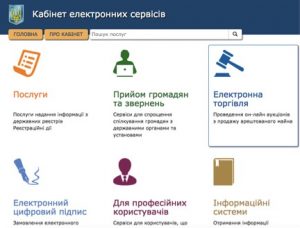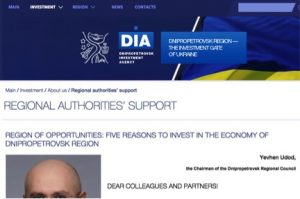One predictable and damaging consequence of Russia’s marauding in Donbas and the general uncertainty in Kyiv has been a near total collapse in foreign direct investment (FDI) to Ukraine. According to recent UN estimates, net FDI into Ukraine amounted to negative $300 million in 2014, signalling that more investment money left Ukraine than entered. Among emerging economies in 2012 and 2013, only Yemen, Angola and Papua New Guinea had the inglorious distinction of recording negative net FDI flows. Even under Viktor Yanukovych’s kleptocracy, Ukrainian net FDI ranged from 4 to 8 billion dollars annually. These statistics are not just economic abstractions: The number of announced “greenfield” foreign investment projects - actual new facilities funded by outside investment - plunged to 25 in 2014 from 69 in 2013, meaning fewer new factories, offices, and jobs.
What is the Ukrainian state doing about foreign investment?
While many investors have certainly been scared away by Putin’s tanks, it’s appropriate to ask whether the government is creating an attractive environment for investment and intelligently promoting Ukraine to potential investors.

Some reforms demanded by Western benefactors are also designed to improve the investment climate – rooting out corruption, simplifying the tax code and ending arbitrary regulatory enforcement. Progress on these fronts is noticeable but limited. In other more mundane areas, the government in Kyiv has taken steps forward. Since early 2015, property records are accessible through an online registry. Not coincidentally, Ukraine jumped from 88th to 59th place internationally for ease of registering property, according to the World Bank’s 2015 Doing Business rankings. Ukrainians can now also look up business entities and individuals through an online corporate registry. While these services have been available in Western countries for many years, they are important tools for both doing business and promoting legal transparency in Ukraine, and the government is committed to offering more e-government services in 2015 and the coming years. Despite these small successes, Ukraine remains a largely unfriendly place for investors. The World Bank ranked it 96th overall for ease of doing business, behind Mongolia (among others), 22nd out of 26 low- to medium-income countries in Europe and Central Asia, and awarded particularly low scores to Ukraine's legal system, with minority investor protection occupying 106th place and bankruptcy resolution 142nd.
On the promotion side, a potential investor looking for information on Ukraine is not confronted with a wealth of helpful resources. Many of Ukraine’s neighbors have made attracting foreign businesses a priority, offering comprehensive online information and services through investment promotion authorities, like the slick and content-rich site of the Estonian Investment Agency. Poland's wide-ranging and effective FDI strategy led the international consultancy KPMG to name the "network of institutions supporting investors" as one of the main drivers of investment in the country. Turning back to Ukraine, the website of the Ukrainian Investment Agency has been down for months. Far from offering a one-stop shop for interested investors, the central government appears unable to provide basic information for foreign investors. Clearly the government has many concerns, but a well-designed, -resourced, and -staffed agency for investment and trade promotion would seem to be a top priority given Ukraine’s desired economic re-orientation toward the EU and other Western (or simply non-Russian) markets.
Are there reasons for optimism?

As usual, regional governments are out in front of Kyiv’s plodding bureaucracies. The Lviv and Dnipropetrovsk administrations operate user-friendly and frequently updated investor portals that list current projects, highlight assistance available to potential investors, including navigating bureaucratic hurdles, and do a bit of basic advertising for their regions. Looking ahead, the Ukrainian government will likely seek to privatize hundreds of non-strategic state-owned enterprises, ideally to foreign investors, as explained to Hromadske in February 2015 by the Minister for Economic Development and Trade, Aivaras Abromavičius. Putting Ukraine back on the map for foreign investors is a necessary step for finding qualified buyers for these entities, and a national investment promotion strategy along the lines of Dnipropetrovsk’s would be a good starting point.
Despite the obvious challenges, Ukraine has a number of selling points for foreign investors. Wages have always been modest, but adjustment of the Hryvnia from its prior artificially-high exchange rate has further depressed the cost of investing and operating in Ukraine. The Association Agreement with the EU is bringing European standards and a free trade regime. Western development banks and other institutions are committing financing for projects in Ukraine. Government is becoming more professional, even if the progress is painfully slow.
In sum, Ukraine’s FDI situation, like its economy, has essentially hit rock bottom. Foreign investors willing to stomach some risk will find a situation in flux, but also one offering opportunities, particularly in regions that have bypassed Kyiv and taken their own measures to pursue outside capital. The central government would be well advised to play catch up.




